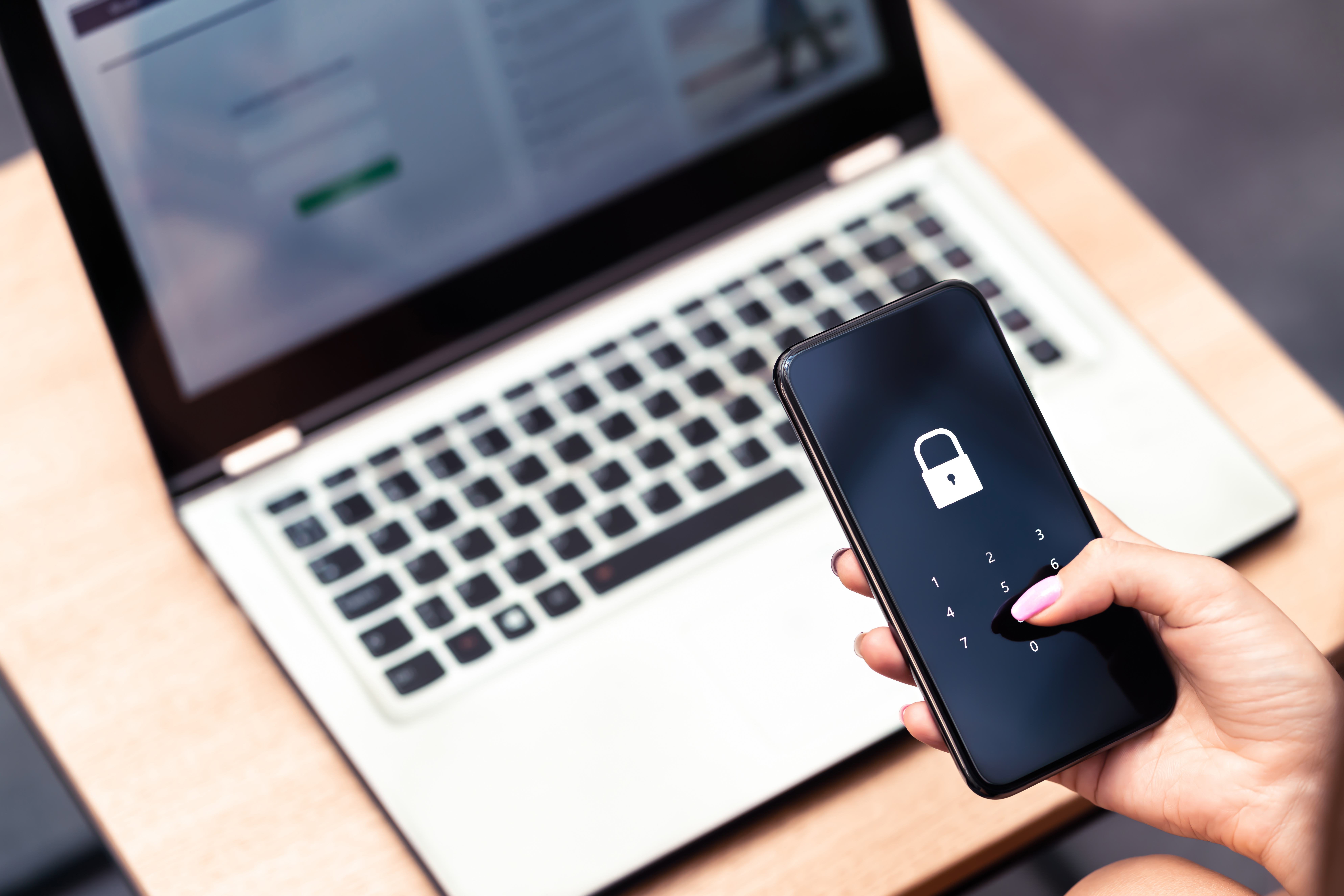Smart phones and other mobile devices have opened the world to us all. And while having a wealth of information at your fingertips makes navigating a new city or sending a quick email convenient and easy, the downside is it can leave your online data more at risk to cybersecurity threats. This means the more advanced and widely used cell phones get, the greater the need to protect them from hackers. Your online banking information, social media accounts, email accounts, and other private information can be accessed through your smartphone and used for fraud or theft, so make sure you’re using phone security best practices to protect it all.
Cell phone security threats
You might think your cell phone and online data aren’t at risk if no one else can physically access your device. However, most cell phone security threats can target your mobile phone without ever being anywhere near it. Cybercriminals are capable of remotely hacking your device, infecting malware, and stealing data at any time and from anywhere. By following cell phone cybersecurity safety tips, you’ll be able to avoid these malicious threats.
- Phishing
- Data leakage
- Network spoofing
- Unsecured apps
- Spyware
How to protect your phone from hackers
By proactively securing your cell phone, you’ll be able to avoid cybersecurity threats before they happen. Protect your device and all the important information it holds by following these safety tips.

1. Create a strong password
If you lose your device, a strong password remains the last barrier protecting your private information. For most mobile phones, a default password is a four-digit number. Avoid using commonly guessed passwords, like 0000, or important dates or years. Instead, choose a combination of numbers that make it tough for potential hackers. Most smart phones include an extra layer of protection that lock and disable the device if someone fails to enter a correct password after a certain number of times. If that kind of security feature is available on your phone, make sure it’s enabled in your settings.
You should also set strong passwords for any accounts you use on your device, like email, online banking services, or social media accounts. Account passwords should include a combination of lower and upper case letters, as well as symbols and numbers to make them stronger. Never use your name, birthday, or other easy-to-guess information as your password.
2. Avoid open WiFi
Free WiFi can come in handy when you’re on the go, but it can also leave your device vulnerable to security threats. Hackers access open WiFi networks and use malware to steal data or infect vulnerable devices. When you’re in public, only use WiFi networks you recognize, like WiFi at a coffee shop or restaurant or networks that have password protection or require log-in information. If you can use a VPN while accessing public WiFi, that can add an extra layer of protection by encrypting your data and traffic so no one can intercept it. And it goes without saying, when you’re at home or work, secure your WiFi by creating a strong and unique password.
3. Look out for phishing
“Phishing” is a method used by cybercriminals to get their victims to give up personal information through deceptive emails or other electronic communications. Common phishing tactics include messages announcing you’ve won a prize and directing you to a website that is ready and waiting to infect your device. And your smartphone is just as susceptible to an attack as a laptop or desktop computer. All that’s needed for infiltration is for you to open a phishing email on your phone. Hackers also use text messaging to prompt you to click on links containing malware. The best and safest rule of thumb? Never download or click on links from unknown text messages or emails. Protect yourself from scams that target mobile devices by blocking unknown or suspicious phone numbers and email addresses.

4. Only download trusted apps
Smartphone apps allow you to shop, play games, and browse online, but they also open your device to a nefarious world of security risks. Hackers create fake apps that give them access to your device after you download them. Poorly made apps also pose a risk, as hackers exploit security weaknesses to access your data. When you want to download a new app, check the developer information and user ratings first. Never use third-party app stores. Instead only choose apps from reputable online stores like the App Store or Google Play.
5. Back up your data
Backing up your data doesn’t protect your device from cyber threats, but it’s an important step to restore your information if your device becomes compromised. Uploading important information like contact lists, pictures, and videos to an external hard drive or the cloud allows you to access your files on a new device.
More ways to protect your devices
Following these smartphone safety tips can help protect you from cyberattacks. And they’re no more complicated than following good cybersecurity practices for any of the other devices you use each day. For more cybersecurity tips and advice, visit the Quantum Fiber blog.








